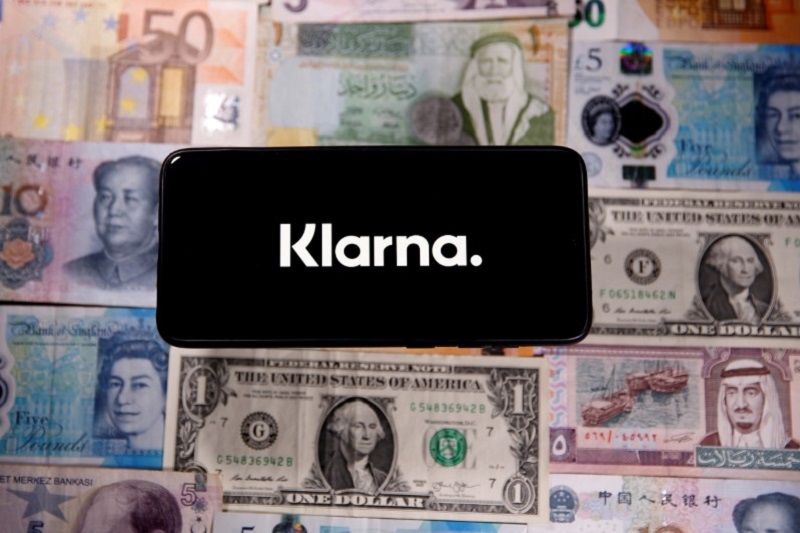(Bloomberg) -- Klarna Bank AB is Europe’s most valuable fintech unicorn, a payment pioneer in a booming sector that’s being wooed by London for its potential stock listing. It also has a funding model that’s going to be threatened by the rapidly emerging reality of higher interest rates.
The Swedish “buy now, pay later” company gives out effectively interest-free loans so online shoppers can stagger payments, while it depends on merchant fees and late payment penalties for revenue. It was valued at almost $46 billion after a funding round led by Softbank (OTC:SFTBY) last year.
It uses a mix of customer deposits -- it offers conventional bank accounts in Sweden and Germany -- and short-term debt to fund the loans. This is a model that thrives in a low interest-rate world because such debt tends to be very cheap, and rates on deposits are still extremely low.
But things are shifting fast. Bank of England interest rates are already rising, the U.S. Federal Reserve is set to follow in March, and there are bets that the European Central Bank could also move this year. Given the model behind Klarna’s rapid growth, the change coming in 2022 has implications for funding costs.
“The whole business model is based on wafer thin margins -- it doesn’t have the buffer of high interests that credit card providers charge on usage,” said John Colley, a professor at Warwick Business School and a fintech expert. “Once the environment turns nasty, which it is going to, it falls flat.”
Klarna is among a raft of “buy now, pay later” companies attracting young consumers and investor attention. It says it has 90 million active customers and processes 2 million transactions a day. Others including Affirm (NASDAQ:AFRM), PayPal Holdings Inc (NASDAQ:PYPL), In 3 and Afterpay, which was bought by Jack Dorsey’s Square Inc (NYSE:SQ) for $29 billion last year.
The firm’s debt includes 3.1 billion Swedish krona ($297 million) of bonds coming due in the next two years and a 5 billion-krona commercial paper program, a form of short-term debt that’s becoming less popular because of market stress at the onset of the Covid-19 crisis.
In response to questions from Bloomberg, Klarna said that only a small portion of its lending is funded through debt, and estimates that 80-85% comes from customer deposits. “The average maturity of Klarna’s credit portfolio is around 40 days. As such, the maturity profile of the funding overall is longer than that of the assets,” it said.
In a financial report last October, Klarna said that loans to consumers totaled about 52 billion krona.
Deposits stood at 45 billion krona and debt securities at 8.1 billion krona, about 15% of the mix. While that ratio by itself isn’t a concern, the potential issue relates to the nature of the debt.
“Thanks to the ECB, short-term borrowing costs will remain very low for the next year or so. But eventually, rates will go up and companies using this will have to re-evaluate their model,” said Pierre Boyer, head of short-term debt at Belgian fund manager Candriam. “Will that mean a big change for financial institutions using this? Absolutely.”
He hasn’t invested in Klarna’s commercial paper, but has positions in similar instruments by other European financial institutions. Klarna’s debt is mostly held by local Swedish investors; Bloomberg attempted to contact a selection of these without success.
While traditional banks also borrow to lend, Klarna is different because it charges customers little to no interest if they pay on time. It reported a pretax loss of 3.1 billion krona in the first nine months of 2021.
There’s also the fragility of commercial paper, where maturities typically range from a few days to a few months, which was exposed in the turmoil in the early days of the coronavirus outbreak.
Access to commercial paper froze when the pandemic first roiled markets, forcing the Fed and the European Central Bank to step in to stabilize it. Several large corporations have since reduced reliance on it.
“Understandably, companies such as Klarna like to get as cheap funding as possible, but the risks are when that debt turns over and the markets do get volatile or seize up as it did during the pandemic,” said Michael Taiano, an analyst at Fitch Ratings. “We tend to like longer-dated maturities that are, in an ideal world, spread out over a longer time frame.”
©2022 Bloomberg L.P.
